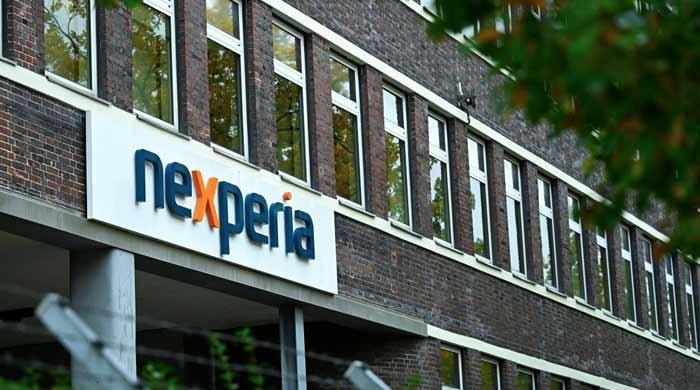China said on Saturday it would exempt some Nexperia chips from an export ban imposed following a row with Dutch authorities that alarmed European companies.
Concern over the chip shortage began when the Netherlands invoked a Cold War-era law in late September to take control of Nexperia, whose parent company Wingtech is backed by the Chinese government.
China, in response, banned any re-export of Nexperia chips to Europe and accused the United States of interfering in Dutch legal proceedings aimed at removing Nexperia’s Chinese CEO.
Beijing on Saturday blamed the Dutch government’s “inappropriate intervention in the internal affairs of companies” for leading to the “current chaos in the global supply chain.”
“We will comprehensively examine the actual situation of enterprises and grant exemptions to exports that meet the criteria,” a spokesperson for China’s Commerce Ministry said in a statement, without giving details.
The resumption of some Nexperia shipments was part of a trade deal reached between Chinese President Xi Jinping and his U.S. counterpart Donald Trump after talks in South Korea on Thursday, the Wall Street Journal reported, citing unidentified sources.
Chinese and European officials were also expected to discuss Nexperia during their meeting in Brussels, EU spokesman Olof Gill said.
Friday’s talks were “a welcome opportunity for both sides to take stock of… the introduction and implementation of export controls,” Gill said in a statement Saturday.
The discussions focused on “controls on rare earth elements introduced or proposed by China, as well as an update on controls and developments on the EU side”, he said.
The press release does not specifically mention Nexperia.
Furthermore, Berlin welcomed Beijing’s decision on Saturday as a “positive sign”.
“The latest reports from China constitute the first positive signs of an easing of tensions,” said a spokesperson for the Ministry of the Economy. AFP.
He stressed that “a final assessment” of the implications of Beijing’s announcement was not yet possible.
Anxiety among car manufacturers
Nexperia produces relatively simple technologies such as diodes, voltage regulators and transistors, but which are nevertheless essential as vehicles rely more and more on electronics.
Its chips are found primarily in cars but also in a wide range of industrial components, as well as consumer and mobile electronics like refrigerators.
The company manufactures them in Europe before sending them to China for finishing, then re-exporting them to European customers.
European automakers and parts suppliers had warned of shortages of chips supplied by Nexperia which would lead to shutdowns of production lines in Europe.
The chipmaker supplies 49% of electronic components used in the European automotive industry, according to German financial daily Handelsblatt.
European auto lobby ACEA warned last month that production would be seriously hit.
Nexperia’s chips, while widely used, are not “unique” in terms of technology and therefore “easily substitutable”, French parts maker OPmobility said.
However, suppliers must get new products approved by automakers, which takes time.
Beijing suggested on Saturday that some shipments would resume.
Companies experiencing difficulties could contact the Ministry of Commerce or local authorities, the Chinese spokesperson said.




